Should you take a supplement to get all the nutrients? Find out.
The short answer to the question of whether we need a nutritional supplement is yes. A healthy diet is no longer enough in our Western diet.
According to the German Nutrition Society, you should eat around 650 g of fruit and vegetables a day to get all the nutrients you need. According to studies, a quarter of all women and men in Germany do not manage this. No wonder, because a large salad plate has about 150 g – and who eats only salad in the morning, at noon and in the evening?
Current research shows that our need for certain nutrients cannot be met through food today. Fruits and vegetables contain fewer nutrients. One reason is Increase in intensive agricultural practices around the world and the resulting depletion of soils.
Today, even the freshest fruits and vegetables are deficient in certain vitamins and minerals. According to science, a modern apple today has about 60 percent less vitamin C than it did 20 years ago. Strawberries have 87 percent less vitamin C content. Similar case with magnesium: broccoli today contains 55% less of it than 20 years ago. Spinach has 76 percent less of the vital nutrient.
Certain nutrients are present in our diet in insufficient quantities. This concerns e.g. vitamin D and omega fatty acids. Environmental toxins, constant stress due to the double burden of work and family, and too little sleep also rob the body of valuable nutrients. Itcan be assumed that without nutritional supplements, the body is full but starved for certain nutrients . These nutrient deficiencies are nowadays considered a modern form of malnutrition.
When is a dietary supplement useful?
If your diet lacks certain nutrients
Nutritional supplementation is important when we exclude certain food groups in the diet,. This is the case, for example, if you are a vegan or vegetarian and if you give up or reduce carbohydrates as much as possible for a while.
Specifically, this concerns the supply of vitamin B1, folate, magnesium, calcium, iron and iodine. The missing nutrients must then be provided by a good dietary supplement.
If your needs are higher than average
Nutritional supplementation is also important when we have an increased need for nutrients. This is the case, for example, when we have an active lifestyle, do a lot of sports, are exhausted or stressed.
There is also an increased need for nutrients during pregnancy and breastfeeding or simply when we age.
Even when we are recovering from surgery or illness, the body needs more nutrients for the healing work. And, of course, supplementation is important if you don’t eat a healthy diet every day.
Often a multivitamin in combination with a magnesium preparation is then already a good support.
When nutrients are consumed by your diet
In addition to all this, there are so-called nutrient robbers – these include sugar, alcohol, coffee and tea in everyday life, the Birth control pill and certain medications. Cigarette smoke is one of the worst factors.
Often then lacks the B vitamins, folate and vitamin C. In addition, the nutrient absorption of minerals such as zinc and magnesium is inhibited. Nutritional supplementation is then important to counteract. Again, a good multivitamin in combination with magnesium can already make a difference.
-
Bestseller
Bone Nanza
Plant-based organic calcium complex from organic red algae plus natural magnesium and vitamin D3ab 29,90 € -
Bestseller
Calm A Lama
Plant-based organic magnesium from premium organic green algae extract for muscles and nerves44,90 €1.076,74 € / kg
-
Bestseller
Mr Do-It-All 18+
Organic Multivitamin Complex Premium for men between 18 and 44, All-In-One79,90 €2.069,95 € / kg
-
Bestseller
Mrs Do-It-All 18+
Organic Multivitamin Complex Premium for women of fertile age, All-In-One!79,90 €2.302,59 € / kg
How do I find out if I am lacking nutrients?
A nutrient deficiency shows itself insidiously: The first symptoms are unspecific. For example, fatigue, listlessness and susceptibility to infections may indicate a deficiency.
Often, external signs appear early on. Because the body will save nutrients in the skin, hair and nails first in the case of a deficiency and no longer supply them well. The hair becomes duller, the nails brittle, the skin rougher and flakier.
That should be a red flag for you. If so, it’s best to see a doctor quickly to have a blood test to determine if you need a supplement.
What should you look for in a dietary supplement?
Look for naturalness in food supplements
One should pay attention with food supplements that the vitamins and minerals which are contained come from nature. However, this is not the case for 90 percent of all products. Synthetic vitamins are usually not “identical” to the natural version. The body does not recognize them and excretes most of these vitamins and minerals unused. This is a real waste of money.
Natural vitamins and minerals, on the other hand, have the advantage that they are immediately recognized by the body like any other food and can be optimally metabolized and utilized.
Rule of thumb: If a product’s ingredient list doesn’t have plant, fruit or vegetable names on it, but vitamin names, then your product is definitely synthetic.
Additives should not be included
Additives often only make the production of supplements faster and cheaper, and can affect our health. These include magnesium stearate, for example. This classic additive can mess up the immune system.
Pay attention to the dosage information for food supplements
In many cases, a product appears favorable at first glance. But if you look at the dosage, suddenly you have to take three or four capsules a day, so the range of the product is quite different than you thought. So always pay attention to the specified dosage and check for how long the product will supply you, so as not to fall for marketing tricks.
Made in Germany as a seal of quality for nutritional supplements
Make sure your supplement is “Made in Germany”. Germany still has the strictest rules. Many foreign brands that you can buy on Amazon do not have to adhere to them. It is therefore safest to buy Made in Germany.
Do you have more questions about nutritional supplements? We’ll be sure to answer some of them in our FAQs!
Store the Story
-
Bestseller
Bone Nanza
Plant-based organic calcium complex from organic red algae plus natural magnesium and vitamin D3ab 29,90 € -
Bestseller
Calm A Lama
Plant-based organic magnesium from premium organic green algae extract for muscles and nerves44,90 €1.076,74 € / kg
-
Bestseller
Mr Do-It-All 18+
Organic Multivitamin Complex Premium for men between 18 and 44, All-In-One79,90 €2.069,95 € / kg
-
Bestseller
Mrs Do-It-All 18+
Organic Multivitamin Complex Premium for women of fertile age, All-In-One!79,90 €2.302,59 € / kg





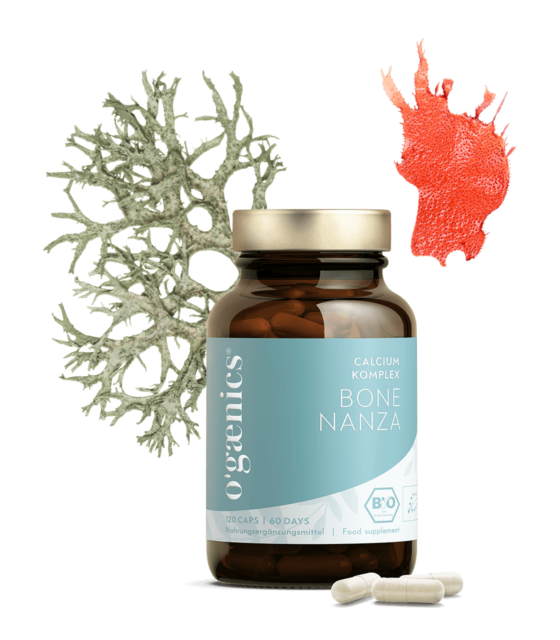
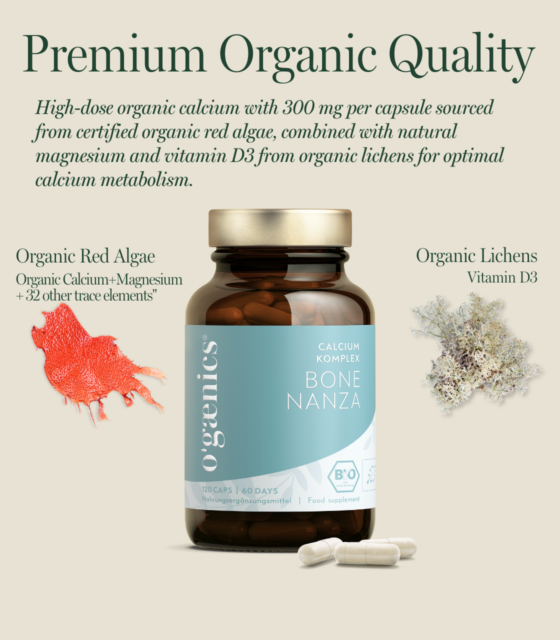
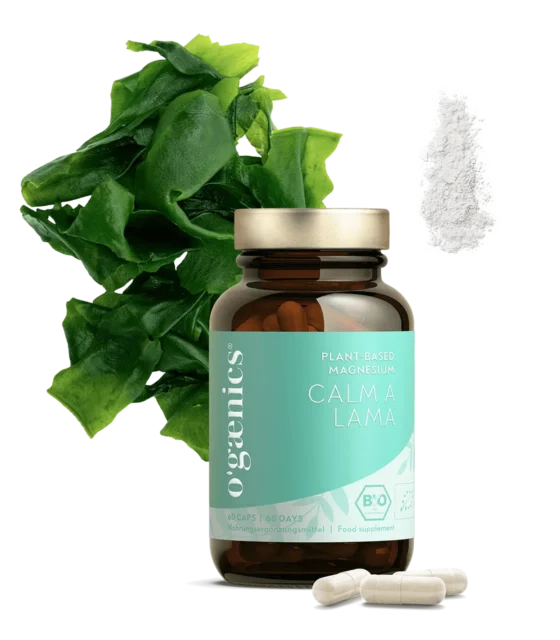
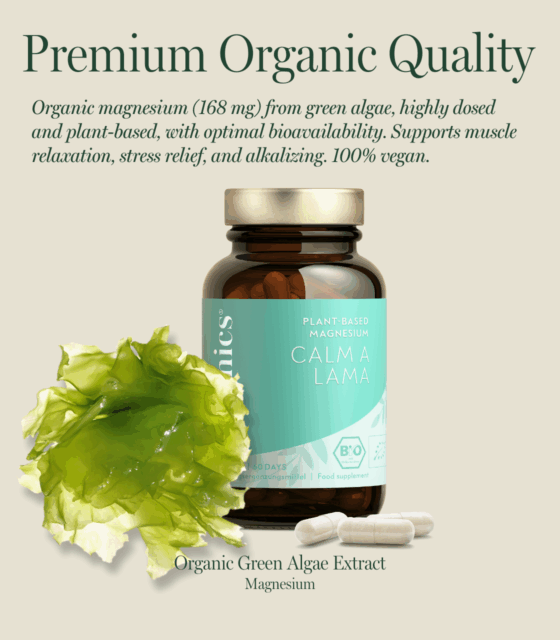
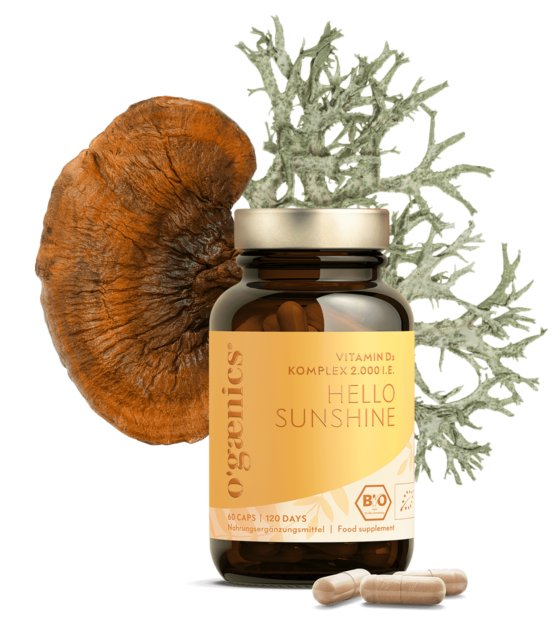
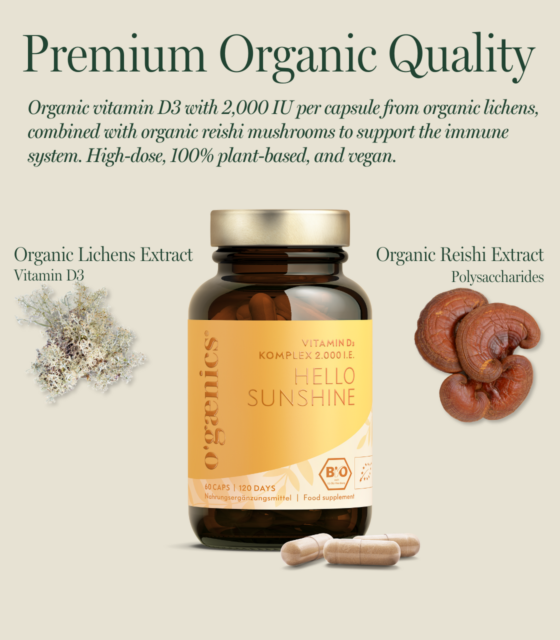
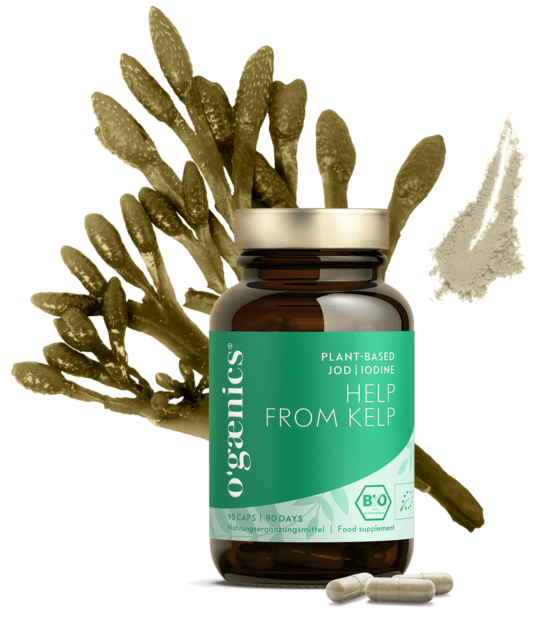
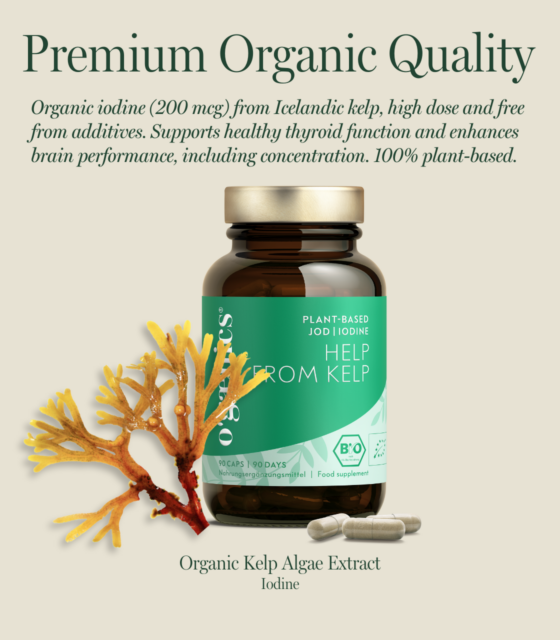
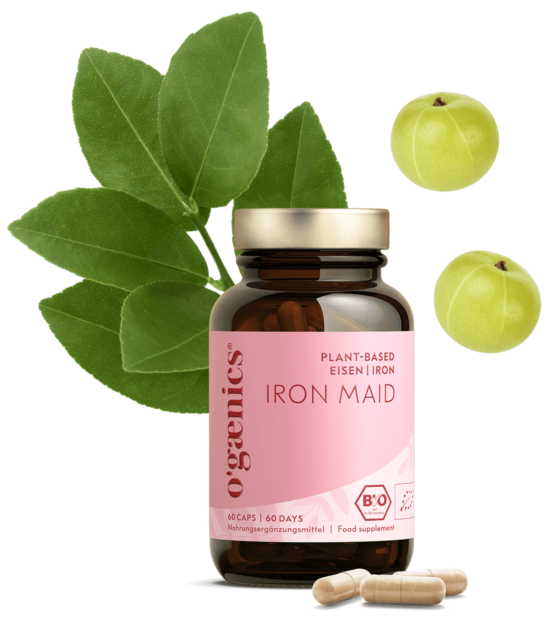
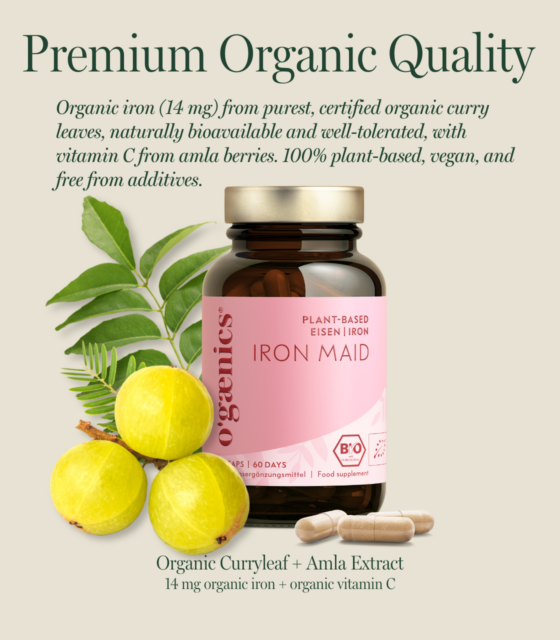

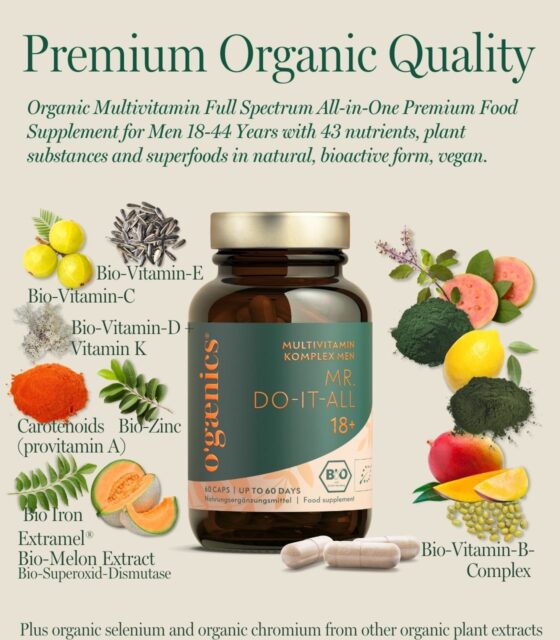

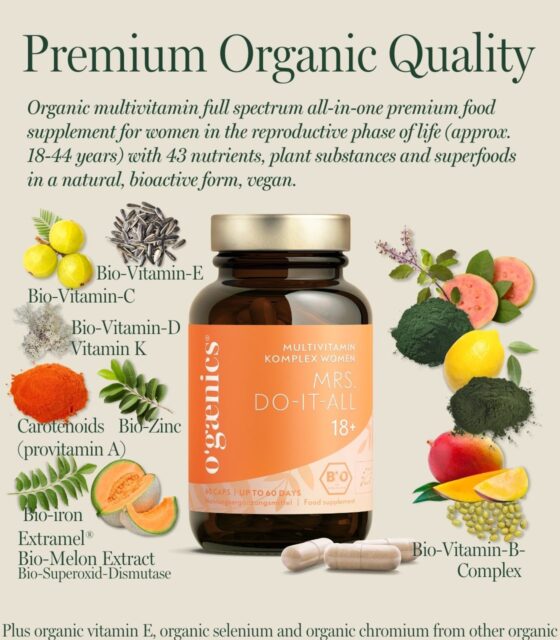
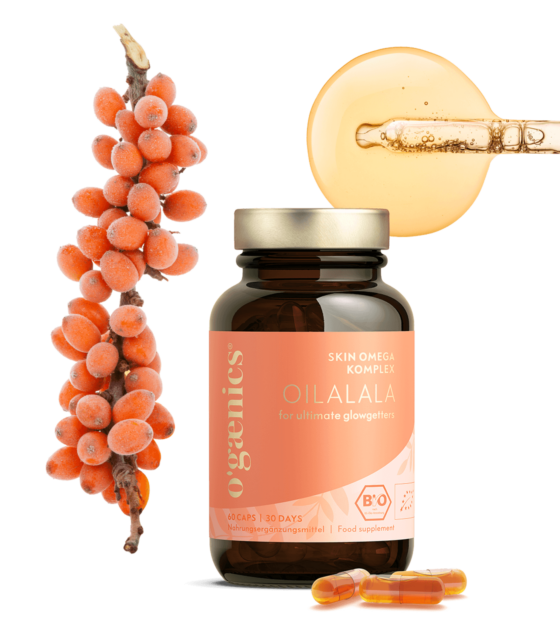
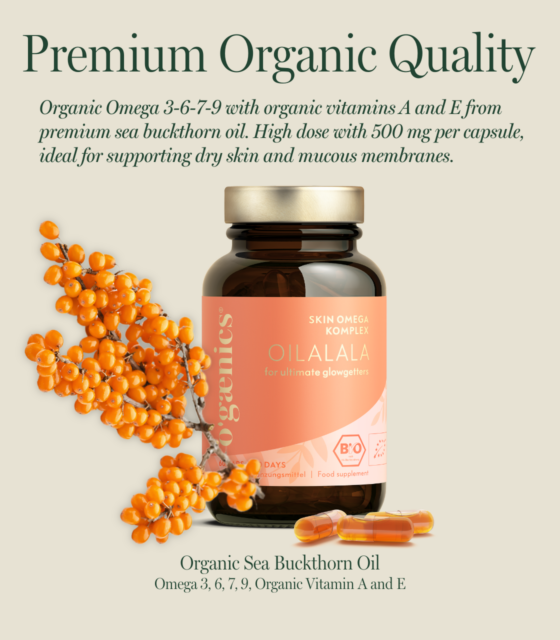
 No products in the cart.
No products in the cart.